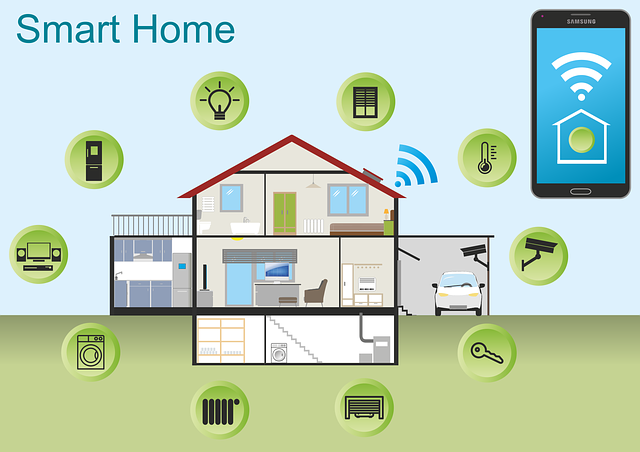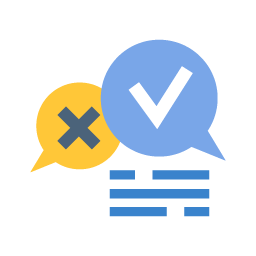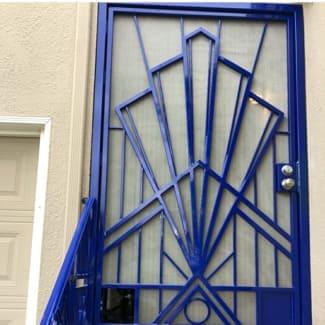
A smart rental lock can be a great addition to your vacation rental. This lock can help with smoother arrivals or departures as well as reduce stress associated with vacation rentals. Smart locks are available in a range of styles, including keypad, fingerprint, and voice. Before you buy a lock, research the market to determine the best choice for your needs. Make sure you have the right features and that the lock doesn't need to be installed by professionals.
A smart rental lock has keyless entry, which is a wonderful feature. It saves time and eliminates the hassle of distributing keys to guests. This is especially important if the rental is for a short time. It is not something you want to have a dishonest guest break into your home.
Many smart locks can be set up to allow two-factor authentication. To do this, you'll need to enter a code along with a Bluetooth ID. Although this feature can save time, it may hinder the ability to unlock the door. If you are looking at locks with two-factor authentication, make sure to verify that it is ADA compliant.

A smart rental lock has another great advantage: it is easy to control. You can check in with your guests from your smartphone, for example. You can also set up a notification that will notify you when your renters arrive while you are away. Notifications give you time to notify police if there is any suspicious activity.
Airbnb and other vacation rental sites have also added the ability for you to access your rental using a smart lock. You will receive a temporary code when you rent from the site. This code only activates for the duration of your stay. This feature is useful for managing your inventory so that you can make sure no one is left out.
To use this technology you will need an app installed on your smartphone. Some smart locks require an app to be used, but others can be accessed from other online booking websites. After signing up for a service you can integrate the locking device into your listing or website.
There are many different features you can look for in a vacation rental lock. If you're looking for a lock with a lot of functions, you may want to consider an UltraLoq model. This particular smart lock offers a long battery life, autolock, and voice command. The smart lock can be installed with a household screwdriver and Bluetooth or WiFi.

The lock can also be set up to automatically issue electronic keys. This feature is great for vacation rentals. It makes it easy to monitor and stop guests from leaving the house unattended. While most keys are automatically issued, there are some models which require the user to enter a code.
FAQ
What security system should I choose?
How valuable your home and personal belongings are will dictate the type of security system you choose. A basic alarm system is a good option, but it doesn't provide enough protection. You can either get a better one with more features, such as remote monitoring, video surveillance or access control.
How much does a quality home security system cost you?
A good home security system will cost around $2,500. While this may seem high-priced, it's actually quite affordable when compared to the peace and security you'll enjoy by owning a safe and secure house.
Can I do it myself?
Yes! If you know how to install an alarm system, you can do it yourself. If you don’t have the skills to do it yourself then you can hire a professional to help you.
Which home security company is best?
ADT is the best home security monitoring company. ADT offers a 24/7 monitoring service at an affordable price. They have a customer service team that is available 24 hours a day and will respond within minutes to all issues.
ADT also offers an iOS and Android app. So you can check on your home any time, anywhere.
Statistics
- Depending on your insurance, 24/7 professional monitoring may qualify you for as much as 15% off your premium. (safewise.com)
- Depending on your insurance, 24/7 professional monitoring may qualify you for as much as 15% off your premium. (safewise.com)
- Most home security companies will charge you around 75% of the remaining term of your contract if you cancel early—and some require 100%.Related questionsWhat type of contract length can I expect from security providers?Home security system cancellation (safewise.com)
- That's probably why Cove has a whopping 98%* customer retention rate. (safewise.com)
External Links
How To
How to Install an Home Security System
A home security system is a device that monitors your property and alerts you if there's any activity. It could be motion sensors, doorbell cameras, smoke detectors or burglar alarms. A home security system usually consists of one or more sensors (e.g., motion detectors), which send signals when they detect movement or sound. The signals are then sent over to a control box where they are monitored and recorded. A control panel will alert your phone, tablet or computer if something is wrong. You will immediately be notified and can take appropriate action.
The first step to installing a home security system is choosing the right type of sensors for your home. There are two main types: passive and active sensors. Passive sensors aren't powered by batteries. They just detect sounds and vibrations in their environment. They can be doorbells or sirens as well as buzzers. Active sensors use electricity for data transmission. Cameras and motion sensors are two examples of active sensors.
There are many different brands of sensors available today. Each brand comes with its own pros and cons. Some sensors are waterproof, others are not. Some sensors have built-in speakers, so they can be heard even when you're not outside. Some work only indoors. Others are more complex, while some offer more advanced features like night vision.
After selecting the right sensors for your property and deciding on a manufacturer, you will want to make a selection. This will ensure that your sensors are compatible. You will find many options in your local hardware store.
Once you have selected a brand of sensor, you need to decide the number you wish to buy. Depending upon whether they live alone or in a group, most people begin with one or two sensors. You may want to consider purchasing more sensors in the future if possible.
Next, decide where you want the sensors to go. Do you want them near doors and windows? Or are you happy to keep them hidden? Before placing them on your property, get permission. They should not be in conflict with any electrical outlets.
Now that you know where you want to put your sensors, you'll need a way to connect them to your control panel. You may need a power adapter, or battery pack depending on the setup. Once you have everything set up, you'll be ready to monitor your property!